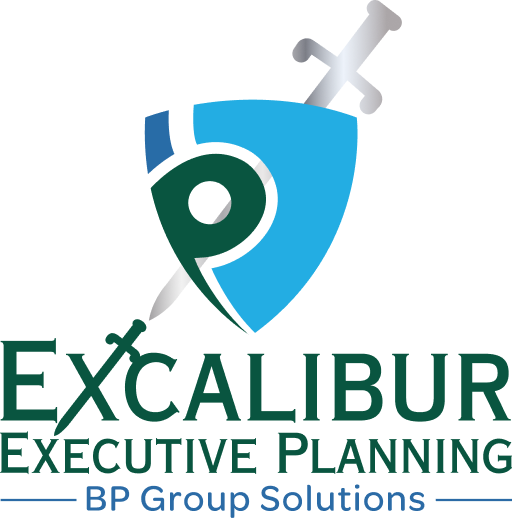10 Group Health Benefits Small Businesses Need
10 Group Health Benefits Small Businesses Need

Losing even one employee can cost a business anywhere from $20,000 to more than $200,000 depending on their skill level and position. Great employees are an employer’s most valuable resource.
To attract great talent, many employers are recognizing the need to review the group health benefits plan they offer.
The 2017 Sonafi Canada Healthcare Survey said only 53% of employees felt their group health benefits plan met their needs. Another 68% said their employer was not sensitive to the healthcare challenges they face.
Business owners have invested a lot to help their businesses grow strong year after year. And they know that a critical component of that investment involves healthy and happy employees.
A group health benefits plan costs less. It also gives the employer tax benefits, improves productivity and minimizes downtime.
The following 10 group health benefits are necessary for small businesses.
Group Health Benefits
1. Health Insurance Plans
Health insurance coverage has always been a core element of group health benefits. But with chronic illness and health costs on the rise, small businesses must find a way to offer better health benefits.
Many types of group health insurance plans are available. Most employers will offer a variety of plans for both individuals and families.
Healthcare benefits cover the following medical care:
- Prescription Drugs
- Para-medicals
- Ambulance
- Medical equipment
- Nursing Care
Employers have an option to pay all or part of the employee insurance premium or allow employees to buy their own insurance.
Employers who pay insurance premiums for their employees can claim a tax deduction. And employees get a tax-free benefit.
Healthcare spending accounts (HSAs) are another option for coverage. With HSAs employees can set up an account with pre-tax money to pay for medical expenses.
2. Dental and Vision
For most families, dental and vision expenses are primarily preventative services. However, the costs can climb quickly when major dental work or eye surgery is required.
Maybe that’s why the Sonafi Survey also found more than 20% of employees wanted higher dental and vision care benefits.
Dental and vision care expenses can be covered by cost-plus plans. A cost-plus plan pays for expenses not covered by the group benefits plan. This plan extends coverage for unexpected expenses.
Cost Plus is an option an employer may decide to offer employees. The Cost Plus option must be set up and approved by the employer.
3. Life Insurance
It is an unfortunate fact that tragedy can strike without warning. It is also true that many families fail to plan for the unexpected.
Offering employees term life insurance protects families hit with the tragedy of a sudden death from an accident or illness.
Families planning for future needs can benefit from whole or universal life insurance. These policies mature over time to provide extra financial security.
4. Critical Illness and Disability
When people are out of work bills pile up. One way small businesses can support employees is by providing disability insurance.
Disability benefits pay for living and medical expenses until employees can return to work. This relieves a tremendous amount of stress and allows the employee to return to work as soon as possible to control lost productivity.
5. Out of Country Travel Insurance
When traveling for business or pleasure, your Group Benefits Insurance Plan continues for you. The plan includes coverage for eligible expenses resulting from a medical emergency outside your province of residence.
Whether traveling abroad or even for a short trip to the U. S., travel insurance can prevent having to cover large expenses out of pocket.
6. Employee Wellness Programs
An increase in workforce health issues suggests a need to provide preventative workplace wellness programs.
Investing in the well being of the workforce is a great way to build employee engagement. Engaged employees are an excellent resource for boosting business success.
Employee Assistance Programs support people going through difficult issues. One way to support them is to provide employee counseling for major life events such as a birth, death or divorce.
Another way is stress management. Prolonged stress often results in illness. Stress management programs may include some of the following:
- Counseling for Depression
- Time Off for Mental Health
- Relaxation Techniques
- Massage Therapy
Other group health benefits programs assist with addiction therapies such as substance abuse counseling and smoking cessation programs.
Wellness programs in the workplace are becoming more common. Some employers use them to reward good health behavior.
Here are some examples of wellness initiatives for the workplace:
- On-Site Fitness Programs
- Weight Loss Programs
- Dietician Services
- Gym Memberships
Once employees begin a program, it helps to monitor their progress. Lifestyle coaching programs and health risk assessments are ways small business owners help their employees stay healthy.
Time Off and Retirement
7. Flexible hours and Paid time off
Life is interesting, unpredictable and ever-changing. When difficult situations occur, employees need to know they are supported. This is the staple of having work-life balance.
Paid time off is a favorite employee benefit. Here are some of the most popular PTO benefits:
- Paternity and Maternity Leave
- Bereavement Leave
- Holidays
- Vacation Time
- Sick Days
8. Retirement and Pension
After years of dedication and service, retiring employees can reap the fruits of their labor in retirement with a good pension plan.
Pension plans have a variety of employer options such as matching contributions, stock options, and profit sharing. Depending on the type of plan provided, employees may leverage their hard-earned money by making rock-solid investments.
Small business owners should find a provider offering financial planning services. A financial advisor can simplify the process for the business owner and the employee.
9. Education Benefits
A business’s workforce is what drives success. Developing an employee’s full potential is a win-win situation. Supporting an employee’s personal growth helps businesses stay competitive in their industries
Educational benefits show a business is willing to invest in its people. These benefits include stipends or reimbursement for the following:
- Professional Development Opportunities
- Tuition Assistance for Higher Education
- Continuing Education Classes
10. Other Benefits
Small businesses need a benefits advisor who understands their unique situation and a group benefits plan that will work for them and their employees.
Group benefits provided by employers vary based on business culture and employee needs. Here are a few other options employers may include in a benefits plan:
- Childcare Services
- Transportation and Parking Fee Allowances or Reimbursement
- Paid Volunteer Programs
- Employee Discount Programs
- Flexible Work Schedules
- Telecommute Opportunities
A Flexible Coverage Package
When small businesses owners are ready to select a group benefits plan, they should choose one that is flexible, stable and easy to manage.
BP Group Solutions works with clients to develop a custom group benefits plan that fits their diverse needs.
They also offer the Chambers Group Insurance Plan that is popular with small businesses.
An excellent explanation of the Chambers Group Insurance Plan can be found here.
BP Group Solutions offers local, personal, flexible and professional service. To get a quote on a group benefits plan that fits your needs, contact BP Group Solutions.





